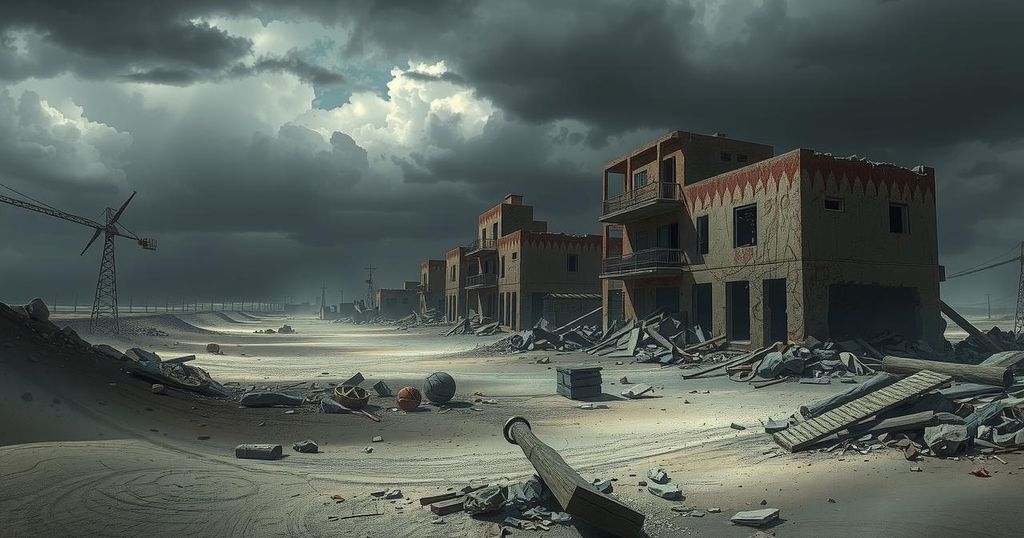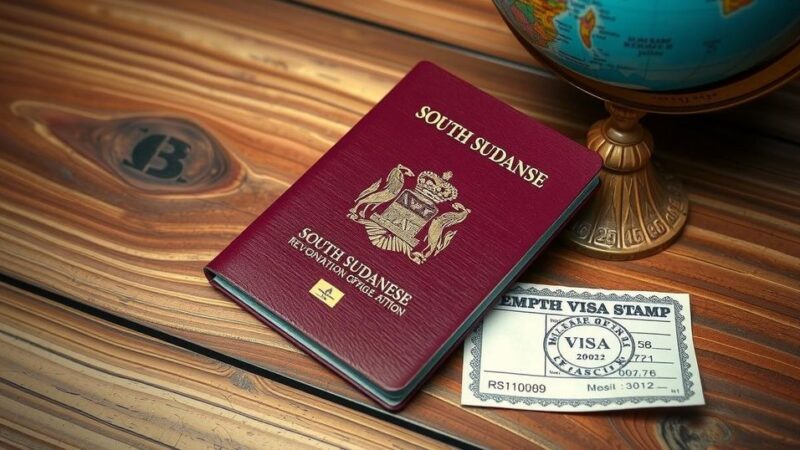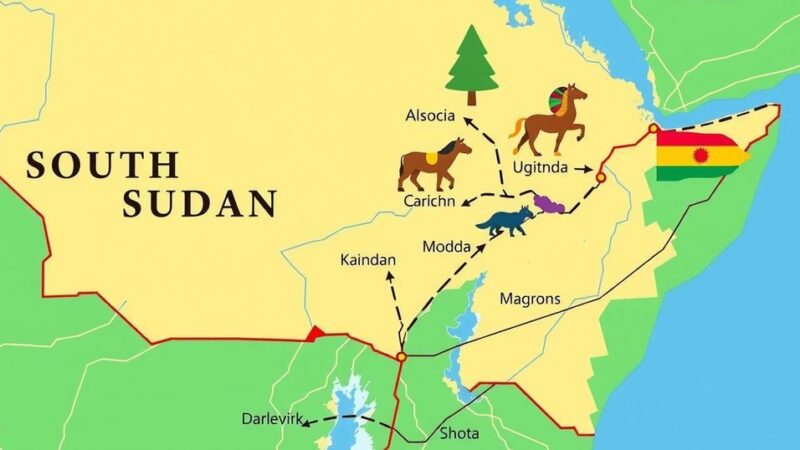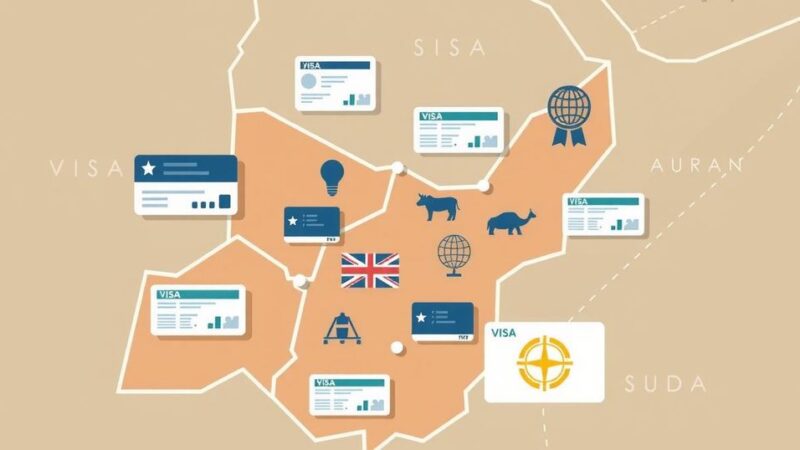The civil war in Sudan is intensifying, with the military claiming control of Khartoum, yet the RSF refuses to acknowledge defeat. The conflict, resulting in tens of thousands of deaths and millions displaced, may now lead to a de facto partition of the country. Both factions are establishing parallel governance, which complicates the situation further as peace talks seem unlikely.
The ongoing civil war in Sudan is reaching a critical stage after nearly two years of intense conflict that has resulted in the deaths of tens of thousands and displaced millions. Recent developments indicate that the military has made significant strides against the paramilitary Rapid Support Forces (RSF), asserting control over the capital, Khartoum, including the significant Republican Palace. However, the RSF has not acknowledged this setback.
The war, which began in April 2023, resulted from escalating tensions between the military and the RSF, originally allies tasked with overseeing Sudan’s democratic transition post-2019 uprising. Instead of fostering democracy, they collaborated to disrupt progress towards civilian governance, eventually leading to brutal clashes for power.
With over 28,000 fatalities reported, though estimates suggest the figure may be higher, the humanitarian crisis continues, as more than 14 million individuals have been uprooted from their homes, contributing to widespread famine across the region. The dynamics of the conflict could transform into a fractured Sudan, with military and RSF-controlled areas.
Following military advances in Khartoum, the path to peace appears bleak, as military chief Gen. Abdel-Fattah Burhan shows no inclination towards serious negotiations. The RSF, led by Gen. Mohamed Hamdan Dagalo, remains steadfast in its fight and retains substantial control in western Sudan, particularly in Darfur.
The RSF’s establishment of a ‘parallel government’ earlier this year has significant implications. Their charter, created in Nairobi, proposes a “secular, democratic, and decentralized state,” reflecting the diverse communities in Sudan advocating for localized governance. Meanwhile, Gen. Burhan has also mentioned the possibility of a transitional government, risking further entrenchment of Sudan’s division.
The RSF’s origins trace back to the Janjaweed militias, notorious for various human rights violations in Darfur. Currently, both the RSF and the military face accusations of committing atrocities, with the Biden administration imposing sanctions on Dagalo due to concerns of genocidal acts attributed to the RSF, which the group has denied.
The Sudanese civil war is at a pivotal point, with territorial control shifting and the humanitarian situation worsening. The military’s recent advances may lead to deeper divisions, as both factions assert competing governance structures. Without genuine dialogue or cooperation from military leadership, the prospects for peace remain dim, maintaining the chaos and suffering within the region.
Original Source: www.newsday.com






